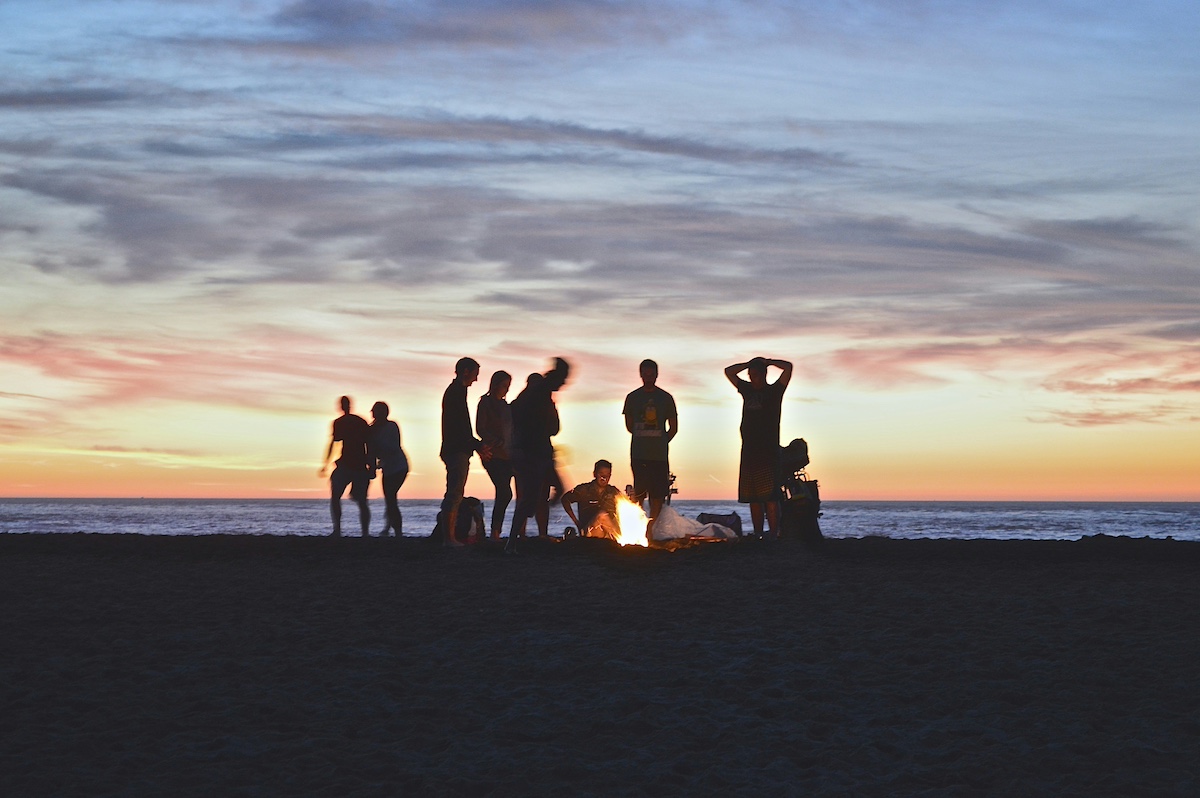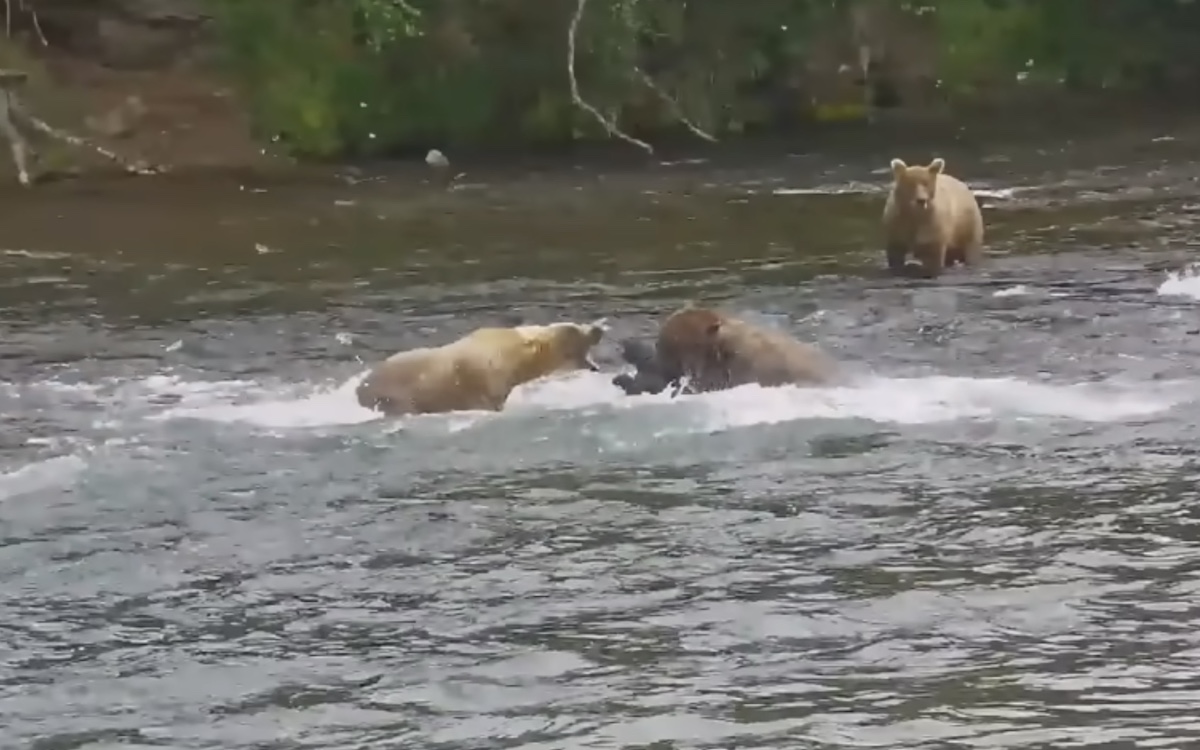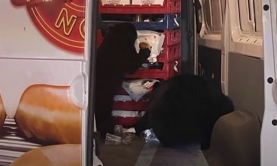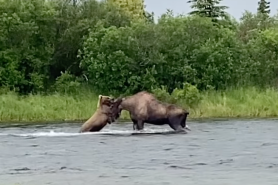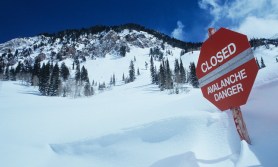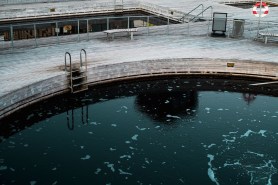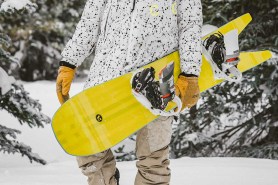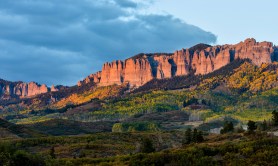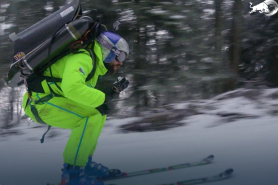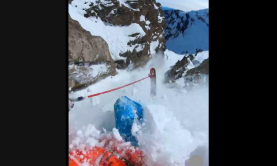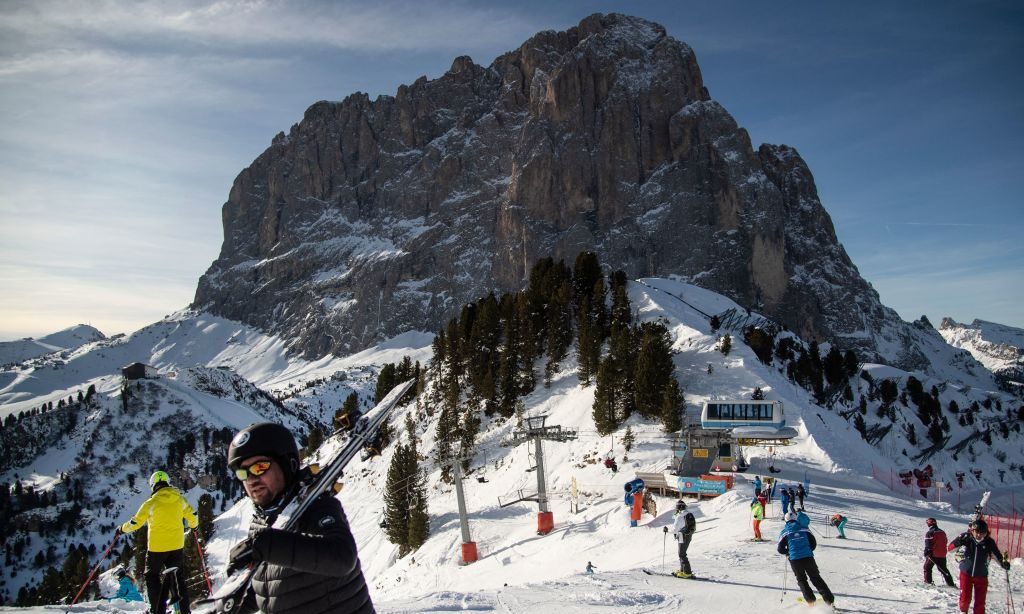

Call them adrenaline junkies, adventurers or just plain crazy – skiers and snowboarders who attempt these runs need world-class skills and more than a little luck to make it safely back to base lodge. Potential risks include obstacles like trees and rocks, the pitch of the slope, major vertical drops and the constant threat of avalanche. A fall on one of these runs could mean serious injury or even death.
Videos by Outdoors with Bear Grylls
If you haven’t been deterred thus far, buckle up those boots as we unleash 10 of the world’s most extreme ski slopes across the globe.
Corbet’s Couloir, Wyoming, USA
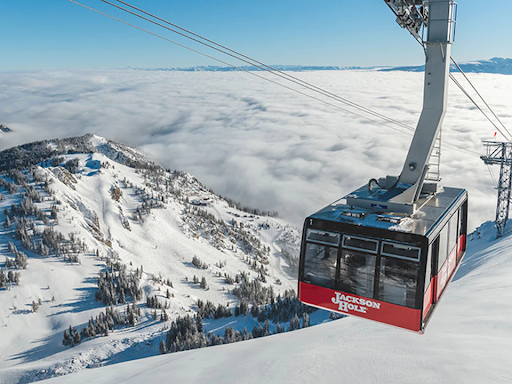
Ski Mountain: Jackson Hole
The Aerial Tram at Jackson Hole affords its occupants a first glimpse of this legendary run on the ride to the top. The Tram is the only way to access this famed drop and it whisks you over 4,000-feet upwards to the summit. Once there, the summit offers spectacular views of the Tetons, the valley below and anything else visible as you rotate 360-degrees. Beginning 10,450-feet-high, this imposing run is arguably one of North America’s scariest ski slope. Named after Barry Corbett, a mountaineer who spotted the narrow crease of snow shaped like an upside down funnel. Skiers and snowboarders from around the globe flock to this famed run to test their grit. Looking down from the top, skiers have one of two options and both require dropping in from the start. Depending on snowfall, one of the drops is 10-15 feet and requires some quick navigation as there are a lot of rocks. The second, though relatively devoid of rocks, has an immediate drop of 20-feet. Regardless of your choice, you are met with a pitch of 50-degrees and it’s all downhill from there.
La Sarenne, Alpe d’Huez, France
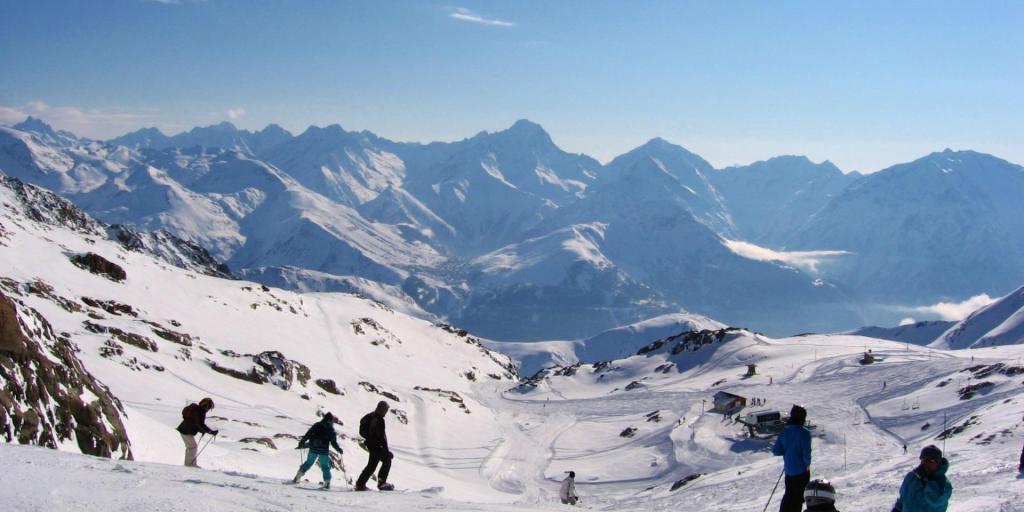
Ski Mountain: Oz-en-Oisans
Located in the French Alps, this is the longest expert/black run in the Alps, if not the world. Starting from a glacier of the same name, the peak can be reached via the Pic Blanc cable car. Beginning at just below 11,000 feet, make sure to scan the horizon as it offers views of Mount Blanc and the Matterhorn. Aside from the tough stretch of moguls at the top, the better part of this greater than 10-mile run is achievable by intermediate skiers.
Body Bag, Colorado, USA
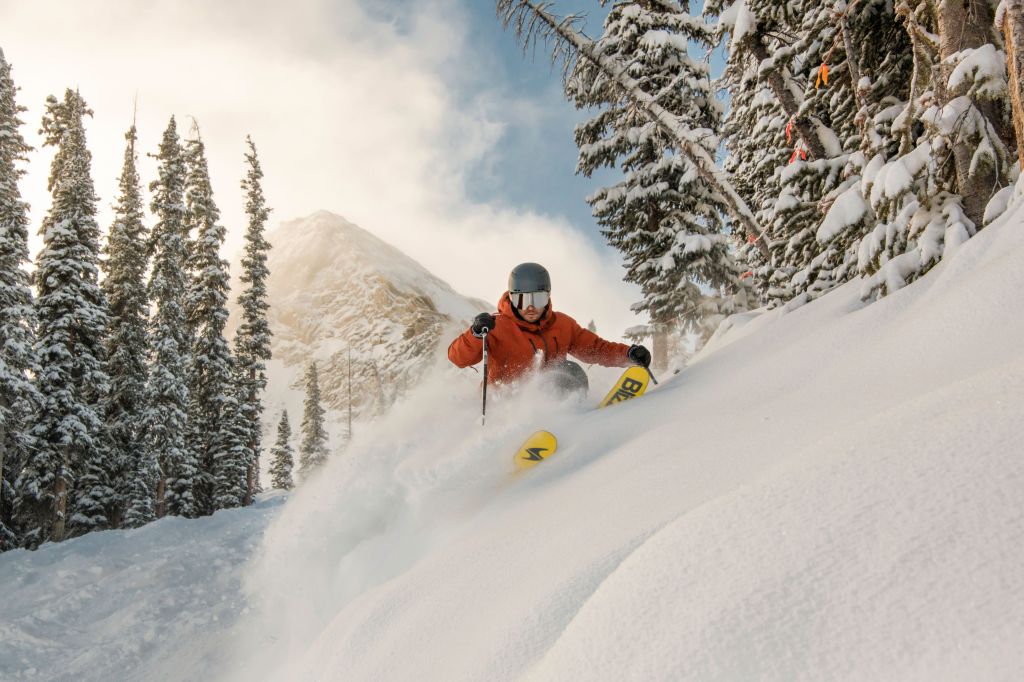
Ski Mountain: Crested Butte
The name says it all. Body Bag’s 275-vertical drop and 45-50 degree slope is enough to give pause to even the most skilled skier. Dubbed “the steepest ski run in America”, this unforgiving run is a mandatory no fall zone. Situated in southwestern Colorado, at Crested Butte, if the initial drop isn’t hard enough, the entire run is littered with rocks and peppered with trees to provide a nonstop, nerve-wracking descent. Keep in mind, Body Bag is flanked on either side by runs bearing the names: Dead Bob’s and Dead End Chutes.
Olympiabakken, Kvitfjell, Norway
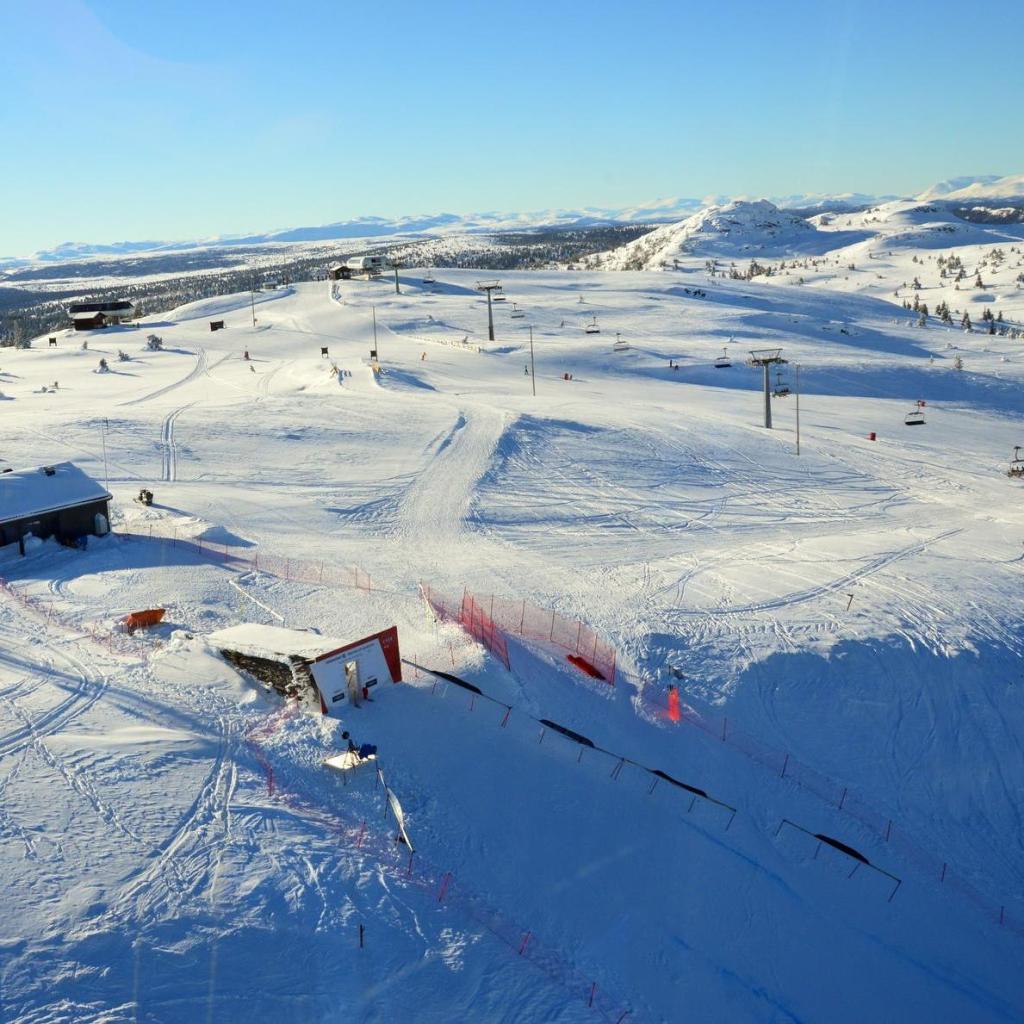
Ski Mountain: Ringebu
At almost two miles long, this is the longest slope in all of Norway. In 1994, Olympiabakken was the site of the Super G downhill run during the Winter Olympics. Kvitfjell, Norwegian for “white mountain”, is one of the most modern ski resorts in the world as it was created ahead of the Olympic games. So, what makes it so treacherous? There are extremely steep sections and this was the site of a World Cup race crash in 2008 involving Austrian skier Matthias Lanzinger who had to have one of his legs amputated below the knee as a result of his injuries.
Christmas Chute, Alaska
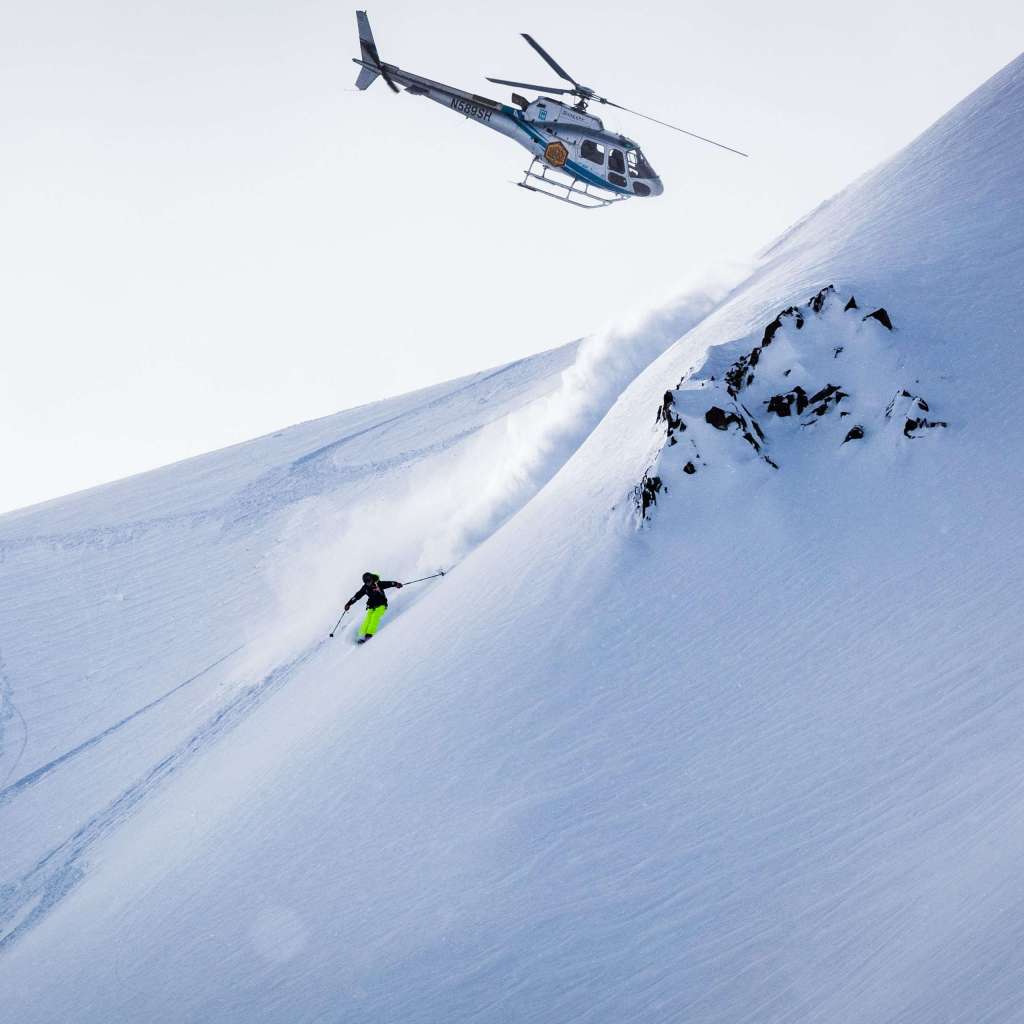
Ski Mountain: Mount Alyeska
There is nothing festive about this piste. Mount Alyeska is Alaska’s largest ski resort. Christmas Chute is a 1,000-foot-long run with an extreme 50-degree pitch and is especially icy and narrow. If you haven’t been dissuaded thus far, let’s hop on the lift and continue to the highest point on the mountain. Once off the lift, skiers face a steep descent down a narrow passage with ominous rock walls on both sides. This run is truly one that only experienced skiers should attempt.
Harakiri, Austria
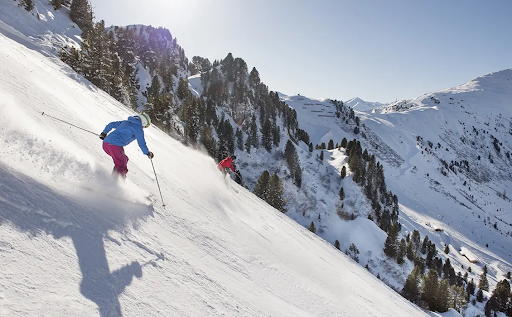
Ski Mountain: Mayrhofen Ski Zillertal 3000
Austria is known for world-class skiing and Harakiri is no exception. Drawing its name from the Japanese ritual suicide practiced by samurai that involved the disembowelment with a sword. And while there are no swords involved in this extreme Austrian run, there are parallels in that its descent can be death defying nonetheless. With an average incline of 78-percent, this slope is the steepest in the country. An ill-timed fall on this slope can mean a long tumble down a vertical drop of over 1,200 feet.
Saslong, Val Gardena, Italy
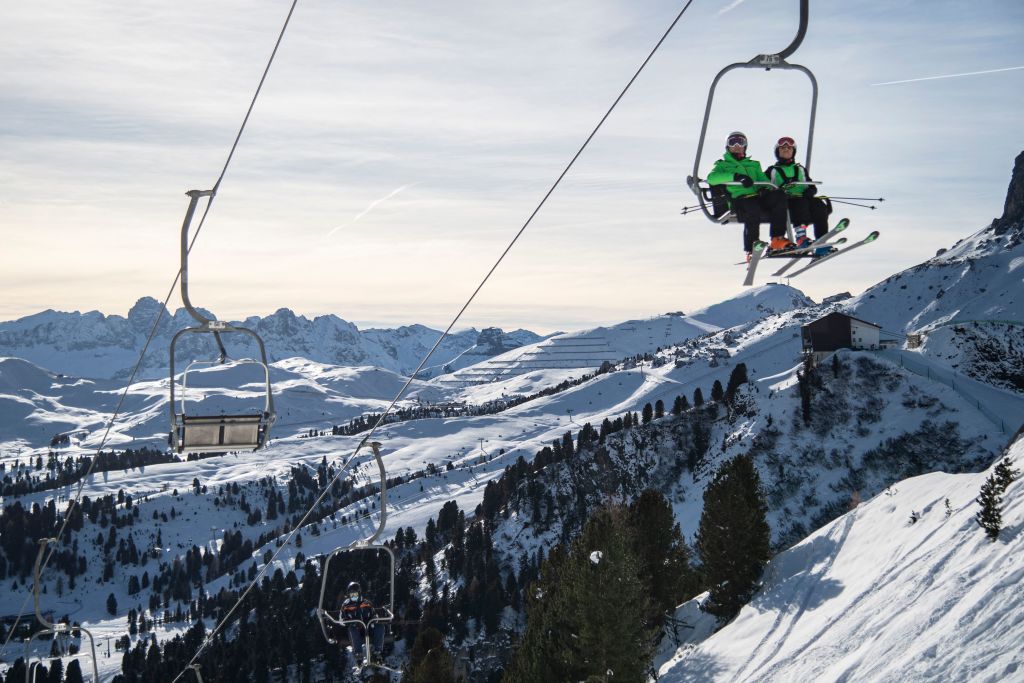
Ski Mountain: Langkofel, Dolomites
Built more than fifty years ago, this Italian slope has likely been on the top of the most extreme runs list since its inception. Val Gardena is a valley located in the Italian Dolomites and is the home to the Saslong. This long run has an average gradient of 24% and a maximum of almost 57%. However, it’s the camel humps that are the defining feature here. These rough patches allow skiers to make frequent and often long jumps which is what escalates this run to its inclusion on this list. These humps are exacerbated between snow falls as they become more pronounced. This is also the site of World Cup free descent each December.
La Chavanette, between France and Switzerland
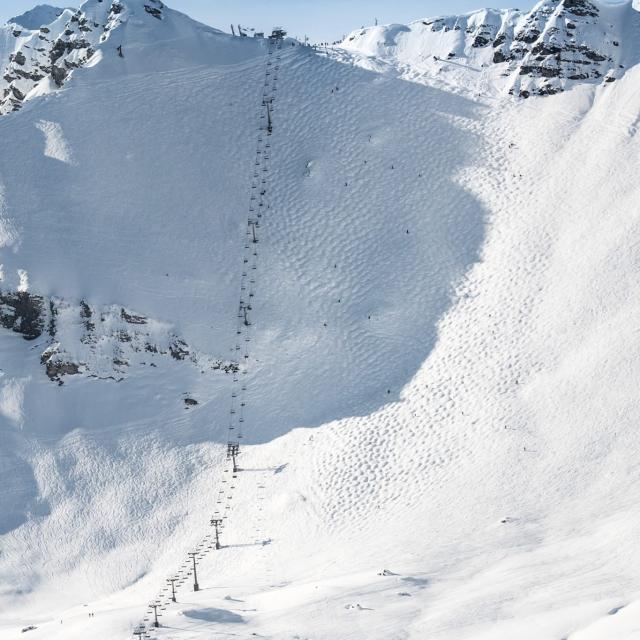
Ski Mountain: Portes du Soleil
Affectionately, or not, this is called the “Swiss Wall”. Located between France and Switzerland, La Chavanette has a rapid descent, it’s choked full of moguls and this is only magnified under icy conditions. This slope is a no go for those without the skills to descend this treacherous run. If there is a “good” time to make this run, it would be after a recent snowfall. Aside from the obvious physical challenges, one of the greatest threats is the high likelihood of other out-of-control skiers careening into you due to the slope’s intense gradient.
Delirium Dive, Banff, Canada
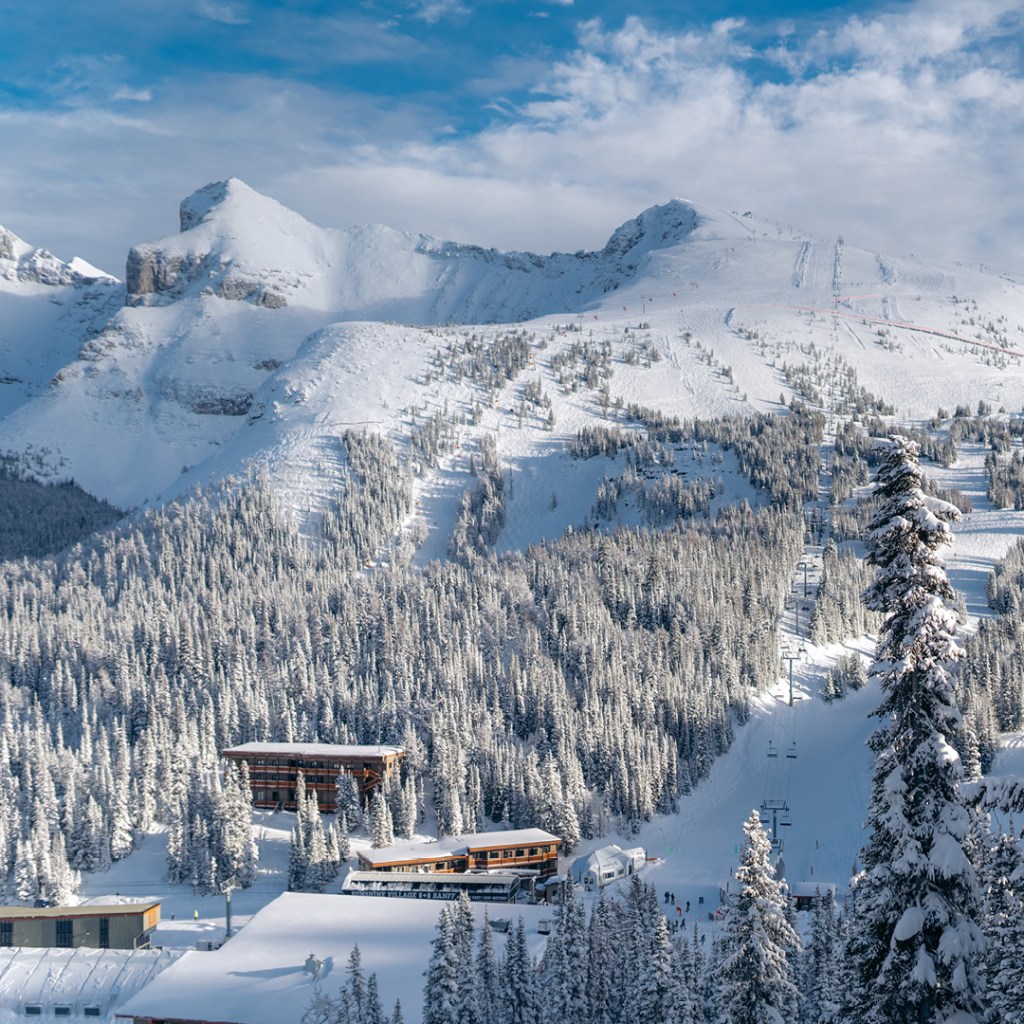
Ski Mountain: Sunshine Village
Located in Banff, Canada, Delirium Dive is a precarious run that’s part of the Sunshine Village Resort. The name Delirium may be entirely fitting as others may think that you are in a state of confusion wanting to make this run. It’s often referred to as simply, “the Dive”. So what makes this slope so formidable? To start with, there’s a tight, rocky passage, scattered obstacles and a roughly 50-degree pitch. To help promote safer conditions, ski patrol requires that all skiers carry an avalanche transceiver, probe, shovel and a willing partner.
Grand Couloir, France
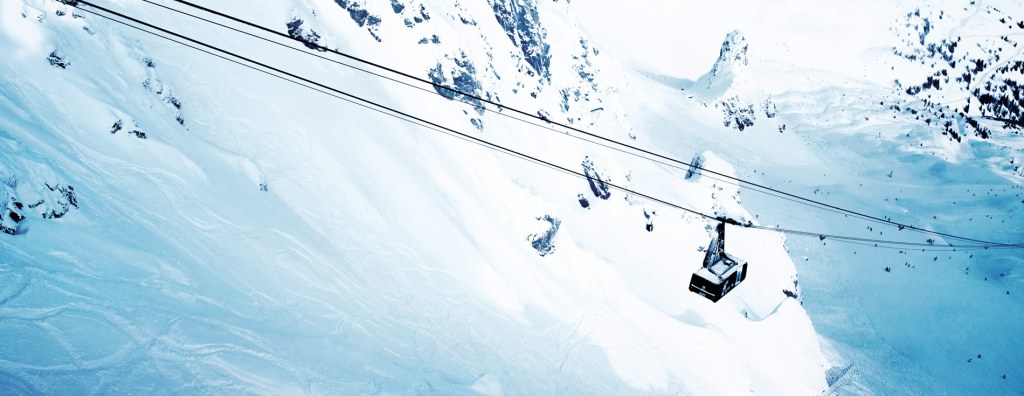
Ski Mountain: Courchevel
Believed to be the steepest track in all of Europe, this slope can only be accessed by a 200-meter trek after the cable car, or telepherique, ride. At only a few meters wide, the entrance to the run can be a bit daunting, to say the least. This was once considered to be the world’s steepest black-diamond run. Additionally, the entrance to this ungroomed, off-piste chute is a hair-raising 35-degrees.

